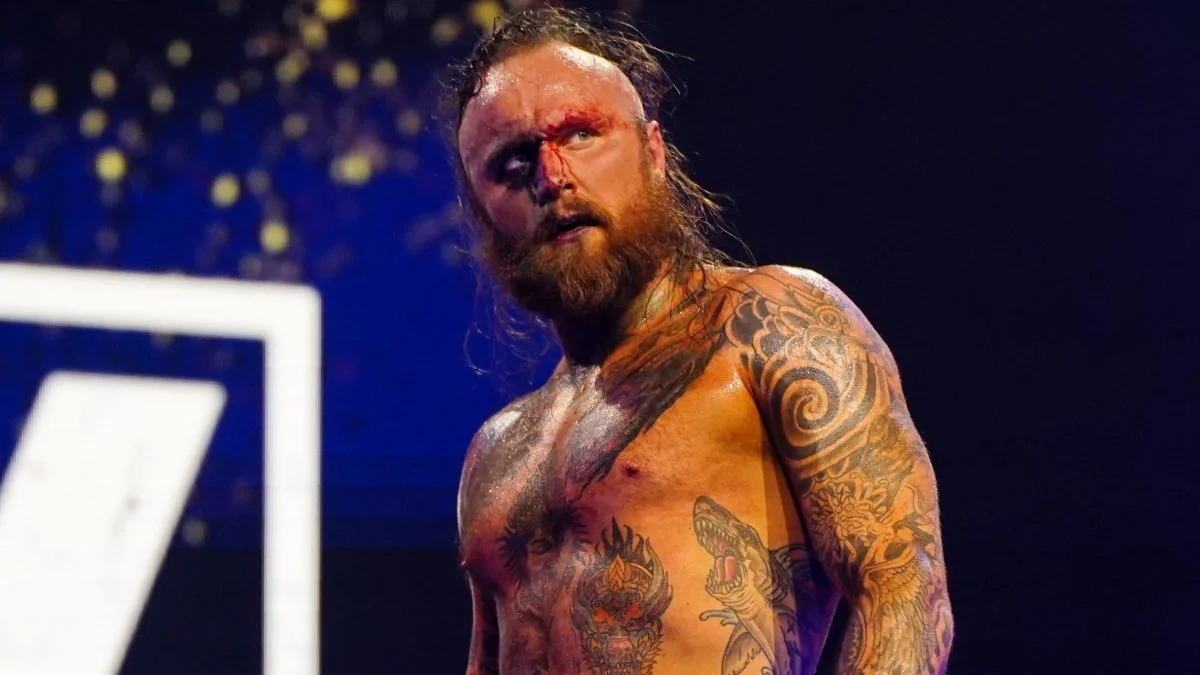
Malakai Black says he’s a bit concerned over the state of today’s wrestling, more specifically the training process being “diluted.”
Speaking on a recent episode of the “Developmentally Speaking” podcast, Black opined on his concerns about wrestling being diluted today, and more.
You can check out some highlights from the podcast below:
On his concerns about wrestling being diluted today: “Wrestling is very accessible nowadays, a little too accessible in my opinion. I feel the training has diluted a lot, there’s a lot of water added to the wine where I feel like a lot of the principles have gotten lost. I’m very proud that I kind of still received more of a traditional style of training, because believe me, the 290 pound, 6 foot 5 prototype monsters were not excited to train with a 6 foot skinny kid from Amsterdam.”
On the industry being too much of a showcase today: “Wrestling needs less Michael Bay and more … a little bit thought provoking methodology.”
In a recent episode of the “Developmentally Speaking” podcast, professional wrestler Malakai Black expressed his concerns about the current state of wrestling, particularly the training process, which he believes has become diluted. Black, known for his unique style and approach to the sport, shared his thoughts on the accessibility of wrestling and how it has affected the training methods used today.
According to Black, wrestling has become increasingly accessible in recent years. With the rise of social media and online platforms, aspiring wrestlers have more opportunities to learn and showcase their skills. However, Black believes that this accessibility has led to a dilution of the training process. He feels that many of the fundamental principles of wrestling have been lost along the way.
Black takes pride in having received a more traditional style of training, which he believes sets him apart from others in the industry. He acknowledges that as a young, skinny kid from Amsterdam, he was not the typical prototype wrestler. However, he was fortunate enough to train with experienced wrestlers who valued the traditional approach. This allowed him to develop his own unique style and stand out from the crowd.
One of Black’s concerns is that the industry has become too focused on being a showcase rather than a platform for thought-provoking storytelling. He believes that wrestling should incorporate more depth and substance, moving away from flashy spectacles reminiscent of Michael Bay films. Black advocates for a more thought-provoking methodology that engages the audience on a deeper level.
In an era where attention spans are shorter and entertainment is easily accessible, Black’s perspective offers a refreshing take on the wrestling industry. He emphasizes the importance of maintaining the core principles of wrestling while also pushing boundaries and exploring new creative avenues.
As wrestling continues to evolve, it is essential for both aspiring wrestlers and industry veterans to reflect on Black’s insights. While accessibility has its benefits, it is crucial not to lose sight of the fundamental aspects that make wrestling a unique and captivating form of entertainment. By preserving the traditional training methods and incorporating more thought-provoking storytelling, the wrestling industry can continue to thrive and captivate audiences worldwide.
In conclusion, Malakai Black’s concerns about the dilution of wrestling’s training process and the industry’s focus on being a showcase highlight the need for a balance between accessibility and maintaining the core principles of the sport. By embracing a more thought-provoking methodology and incorporating depth and substance into wrestling, the industry can continue to evolve while staying true to its roots.
